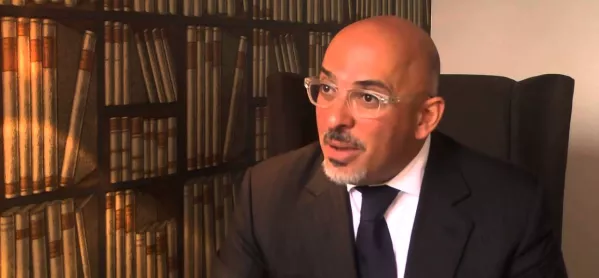A minister has admitted that there is confusion about the way support for children with special educational needs and disabilities (SEND) is commissioned.
Children’s minister Nadhim Zahawi told MPs that the government needed to do more to ensure that there was “the least possible confusion” in the delivery of support to children and their families, during questioning from MPs today.
The education select committee raised concerns that SEND reforms “were a mess”, with parents facing a postcode lottery in the quality of provision and the delivery of education, health and care plans (EHCPs).
Quick read: Gibb suggests specialist SEND teacher training
Hinds: Call for ideas to improve SEND system
Background: Minister admits all areas need more money
Labour MP Emma Hardy highlighted uncertainty between health and education providers over whose responsibility it was to commission school nursing.
She asked Mr Zahawi if he accepted that there was an “an awful lot of confusion out there over the commissioning of support for children with SEND”.
The minister replied: “Yes I do. I tell you for why. The issue is that we have got to work much more closely together…We work very closely already, but for the parents, they just see the system. They don’t see that this is NHS England, or this is the Department of Social Care or this is the Department for Education, and we have got to make sure we get this right.
“We have to make sure there is the least possible confusion in the system.”
Earlier this month, education secretary Damian Hinds said he was looking for ways to improve the funding system for children with SEND.
Speaking at the NAHT headteachers’ union annual conference, Mr Hinds made a call for evidence on funding arrangements for pupils with complex SEND.
Today, Ms Hardy also questioned Mr Zahawi, school standards minister Nick Gibb and the DfE’s disability professional adviser, André Imich, about SEND support available to young people without EHCPs.
She said: “Do you accept, though, that children on SEN support are being failed by the system and are not getting the support they need, and the parents who are able are therefore fighting hard, using resources they probably don’t have, to get an EHCP plan to resolve this?”
Mr Imich disputed Ms Hardy’s claim that SEN support was not working for all children.
Ms Hardy told him that the committee had received “overwhelming evidence” that children were not getting the support they needed.
But Mr Imich said that inspection evidence showed a “slightly different picture and probably a more balanced picture”.
He highlighted examples of the system working well where parents and children were satisfied with the support they were getting.
But he was challenged by committee chairman Robert Halfon, who pointed out that 40 out of 82 local authority areas that had been inspected had received highly critical reports requiring councils to produce a statement of action.
Mr Halfon said the evidence the committee had collected during its inquiry had raised concerns about “accountability, a postcode lottery and a treacle of bureaucracy facing parents” over SEND provision.
He also highlighted the number of people going to tribunal over EHCPs and the fact that the vast majority of cases found in favour of parents.
He said: “Everybody we spoke to thinks that SEND is a big mess, even though the intention of the Children and Families Act was very good. Most people say they support the act, but that the system is a mess.”
Mr Zahawi replied: “The reforms are the right reforms. They are seen as delivering the voice of the child, putting the voice of the child at the heart of the reforms.”
He added: “You might say to me that it has been five years [since the act was passed], but since the transition from statements to EHCPs, we are only one year in so the question is how do we take the reforms and make sure they are working well on the ground?
“There are many examples of this, but unfortunately not many of them cut through into the greater media or public.”





